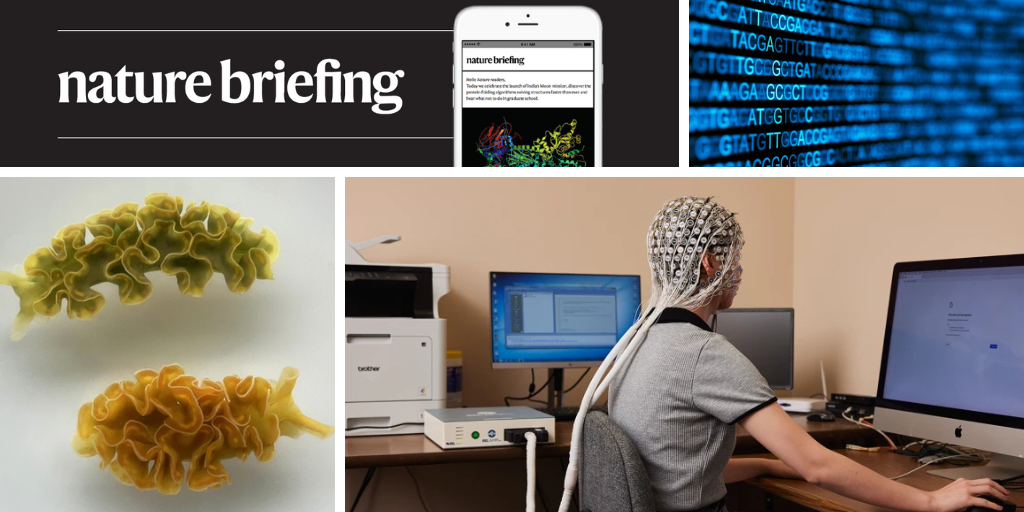
"The brains of people using the artificial-intelligence bot ChatGPT to write an essay are less engaged than those without access to online tools."
"Researchers found that relying on a chatbot for initial tasks might lead to relatively low levels of brain engagement even when the tool is later taken away."
"An artificial-intelligence (AI) model developed by Google DeepMind could help scientists to make sense of 'dark matter' in the human genome."
"The 'solar-powered' sea slugs (Elysia crispata) steal photosynthetic equipment from algae and stockpile it to use as an energy source on a rainy day."
Research highlights that using AI tools like ChatGPT can lead to lower brain engagement during tasks. A study showed that participants relying on AI for initial tasks displayed diminished cognitive activity, even after the AI was removed from the equation. However, the study's co-author cautioned against overinterpreting these findings, emphasizing its limitations. Additionally, advancements in AI, such as Google's AlphaGenome, are being explored to decipher complex genetic information, potentially aiding in understanding diseases like cancer. Interestingly, the article also mentions 'solar-powered' sea slugs which utilize stolen algal organelles for energy, adding to the intriguing intersection of biology and technology.
Read at Nature
Unable to calculate read time
Collection
[
|
...
]